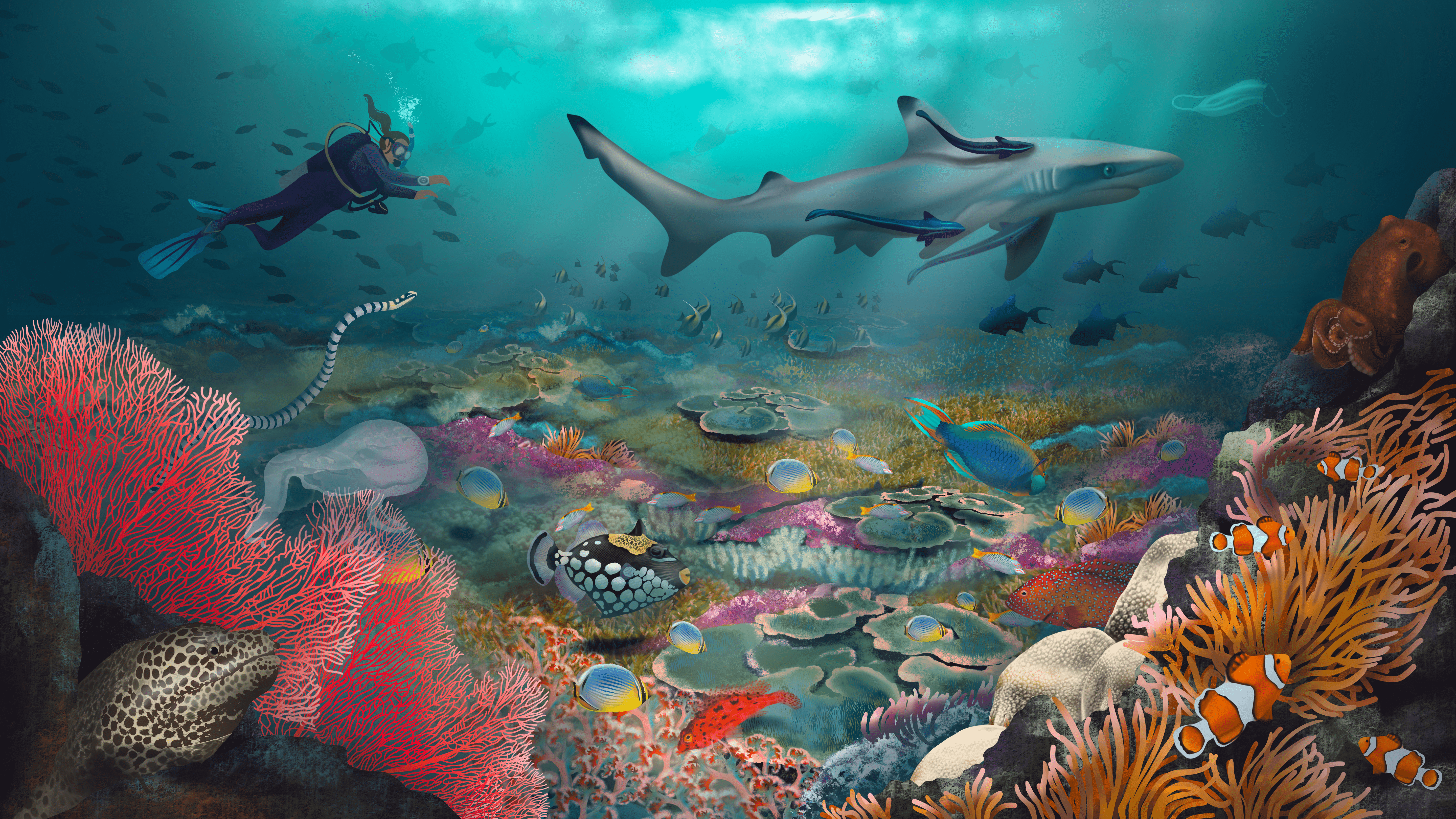Coral reefs are the second most diverse ecosystems in the world, home to around 5% of global biodiversity and 25% of all marine life. They thrive in warm and shallow coastal waters due to their necessity for sunlight and warm temperatures. Coral reefs are built by coral polyps as they secrete layers of calcium carbonate beneath their bodies over large geological time scales. They play the important role of providing shelter and nursery for a large number of marine fauna while only occupying less than one per cent of the earth's surface. In the marine realm, coral reefs could be considered equivalent to tropical rainforests. Coral reefs face a wide host of threats and stresses ranging from pollution, overfishing, rising sea temperatures, ocean acidification, destructive fishing practices, removal of corals for aquarium trade, and unregulated tourism. Corals are symbiotic associations between microalgae and animals. Rising temperatures stress out the coral, and the algae (that give corals their colour) are expelled, leading to the faded, greyish-white look known as bleaching. Plastics can cause similar effects by “choking” corals. Overfishing affects the delicate balance of a reef ecosystem, while fishing practices such as trawling and dynamite fishing cause physical damage to corals. Reefs have shown remarkable resilience to human-induced stresses. However, they too have a breaking point. Understanding these threats plays a vital role in safeguarding these fascinating ecosystems for the future.

Fish, corals, lobsters, clams, crabs, shrimp, seahorses, sponges, sea turtles, sea cucumbers, sea fans, sea urchins, and more
Not only do coral reefs support a high diversity of marine fauna and flora, they also protect coastlines from storms and erosion, and provide jobs for local communities through the fisheries that depend on them to thrive. Moreover, an estimated one billion people around the world benefit from the ecosystem services coral reefs provide. Coral reefs also help create related ecosystems, which in turn help to create vital habitats, fisheries, and sources of income. They can be seen as a centre of activity for marine life. Additionally, coral reefs are crucial for studying the climate because they offer a reliable long-term record of climate change and contribute to broadening our understanding of seasonal climatic variability. Coral reefs also provide recreation and tourism, which helps contribute to the local economy of where the reef is located.
Ecosystem Services and People
Coral reefs, apart from being rich and diverse ecosystems, are also important in various ways. They serve as natural coastal barriers, protecting shorelines from waves, storms, and floods, potentially mitigating loss of life and severe damage to property.
Coral reefs cut down wave energy by an estimated 97%, reducing coastal erosion, and play a vital role as carbon sinks, sequestering carbon through calcium carbonate precipitation.
Reefs are integral to coastal and global economies, providing livelihood opportunities through fisheries, and tourism in the form of adventure and water sports. In some areas, eco-tourism and recreational activities have come up as important means of livelihood for the coastal communities. These activities are important for livelihoods, and proper management can mitigate some of the risks and pressures to reef ecosystems.